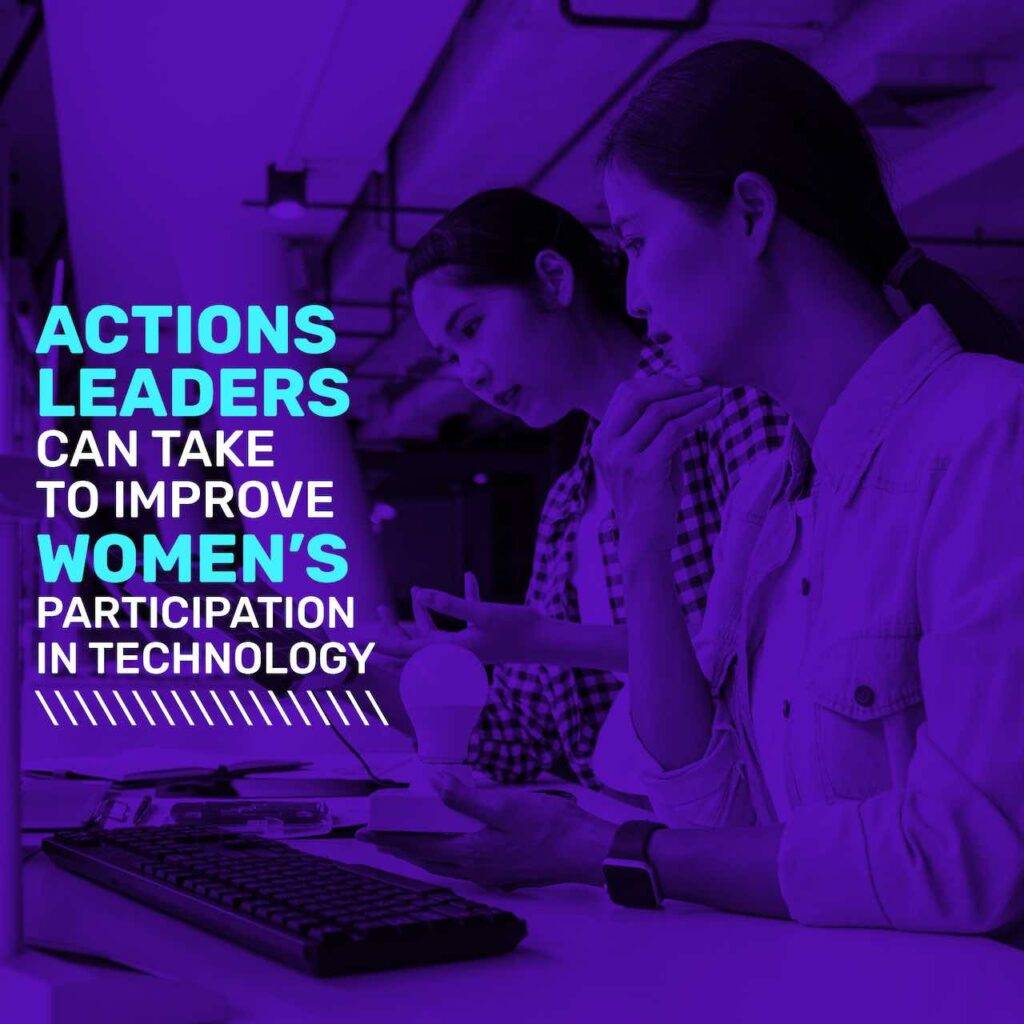A quick exploration of almost any tech department confirms this: Women who embrace technology as a lifelong career are still a rarity in the industry. Certainly, opportunities for women in technology have advanced in recent years, as have educational initiatives to level the playing field. Still, for every woman who stands out or embarks on one of these professions, there yet seem to be many obstacles and issues attached to them.
The truth is that women in technology are not so different from women in other industries. However, the technology industry is known to have a large gender gap. Many women abandon technology in the middle of their careers because they do not get the support they need.
Because of this scenario, many technology leaders and companies don’t know how to accommodate and handle employee problems and requests simply because they don’t experience them often.
These are some actions companies must take to make a difference in retaining and promoting female talent:
Provide a flexible working environment.
According to research by The Wall Street Journal on how men and women view the workplace differently, 36% of women and 7% of men said they work more at home. On the other hand, 7% of women and 30% of men said they do less at home.
Although today remote work has represented an alternative to this problem, what these statistics say is that if something comes up at home or with a woman’s family, she is more likely to leave work (even remotely) to fix it unless she is among 7% of the female population whose partners do more at home. This figure is in line with the reason why there are fewer women in the industry.
Provides access to senior management.
From the same research, it was revealed that more men than women say they interact with senior leaders in their work at least once a week, at all levels of their career, from the initial to middle level and above.
For a woman, access to senior management means access to valuable information and the opportunity to talk about her work and receive feedback on her work. It also increases visibility and opens opportunities you might not have had if you had lowered your head and worked hard. Unfortunately, access to informal leadership and mentoring does not occur often enough for women.
Give compliments and specific acknowledgments.
According to a study by Robert K. Herbert, it was found that women (18.9%) give more explicit compliments than men (3.3%).
And this means that women expect the same when they’re on the other side. A thoughtful compliment, a compliment, or an acknowledgment rather than a generic comment about your work would be helpful.
Regular recognition and praise mean you are recognized. When the feedback is specific (for example, “The research you did on Project X saved a few days of development work, as we understood space better”) rather than general (for example, “You’re doing good!” or “Fantastic job!”), that means the other person really notices and appreciates the value you bring to the organization.
And finally, women tend to deflect/evade positive comments from others, but this doesn’t mean they don’t need or want them. So, as an employee manager, don’t take this the wrong way and keep paying compliments about your work. This way, you will have a committed and happy employee.
Create a purpose-driven organization.
Women take pride in their work. This doesn’t mean men don’t do it, but the source of pride can be quite different between men and women.
Women understand how their work has a positive impact on others, whether in the community, with customers, with other people in the organization, or for their team. They are more motivated to stay in the workforce and even in the same workplace. According to a course conducted by the University of Cambridge, they are often driven by their purpose rather than external factors such as fame and money.
Building a support network
Women need a support network at work, one they can count on and within which they can be themselves without being judged. They are not very good at just reaching out to people and forming their own community because they are often not so open.
They want to be successful, but they don’t want to be viewed negatively for asking for what they need or want. They are rational, achievement-oriented, or ambitious, unlike the stereotypical traits often associated with women: friendly, sensitive, and grateful.
with strong interpersonal and collaborative skills. Having a support network where you can leverage these skills will really help you shine.
Provide coaching.
It is true that women have many beliefs about their limitations and self-perceived barriers. One of the main barriers or beliefs that harm gender equality in the workplace is that women do not realize they can have a family and a career.
They are concerned that if they are promoted to a higher position, they will be expected to work longer hours and not be able to spend as much time with their family. There is the same concern about being paid more, and this is one of the reasons why there is a gender pay gap. Women fear they won’t be able to juggle both and will disappoint their company or family. Changing this perspective will require help to go beyond what they seek and balance their personal and professional lives.



